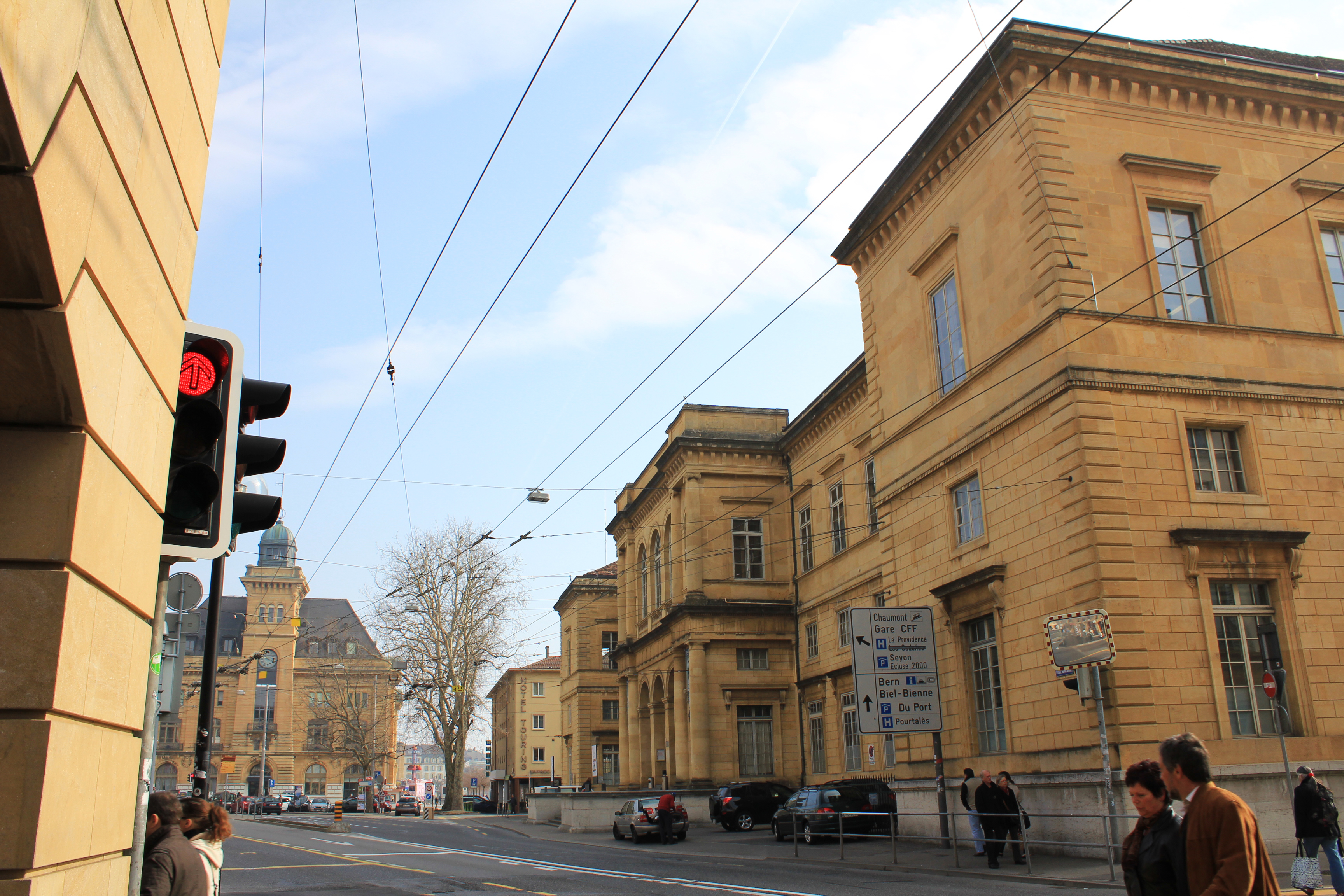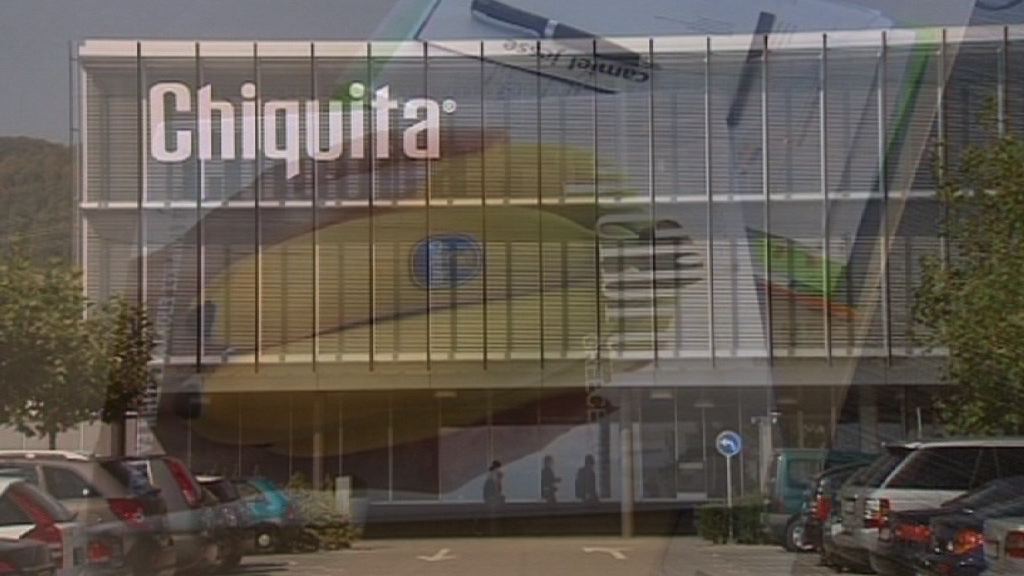Neuchâtel may become corporate tax pioneer

Tax experts will be closely eyeing this Sunday’s vote in canton Neuchâtel that proposes to end controversial corporate tax breaks while setting a low base rate for all.
Supporters of the reform claim it will make Neuchâtel more attractive, while boosting the tax coffers. Observers say it could give the canton a head start in view of any changes arising from future tax talks between Switzerland and the European Union.
But opponents warn that it may lead to a downward spiral of tax competition as other cantons follow suit.
On June 19 voters in Neuchâtel will decide whether to back the cantonal government’s proposal to cut cantonal corporate profit tax from ten to five per cent by 2016 and to reduce tax on holding companies.
For Neuchâtel Finance Minister Jean Studer the fiscal reform represents an essential “new social contract” with business.
“All firms will henceforth be at the same level in terms of corporate taxation,” he told swissinfo.ch. “We are proceeding with tax harmonisation, while offering a very attractive situation when compared nationally or internationally.”
These measures will make the western Swiss canton one of the most attractive in Switzerland for new businesses. At present, companies pay an average 18.8 per cent combined local, cantonal and federal taxes on their profits. Neuchâtel’s reforms would lower the total rate from 22.18 per cent to 15.6.
The project aims to put an end to the canton’s extensive use of the so-called Bonny Decree at the end of the 1970s that granted firms tax breaks. These were introduced following massive job losses and a population exodus caused by a slump in the local watchmaking industry.
“In two years we lost 15,000 people, or ten per cent of the population – 10,000 jobs,” said Studer. “It was a disaster and we needed to do everything possible to create employment and income for households.”
Owing to these tax breaks only half of all Neuchâtel-based firms today pay corporate tax, worth SFr1 billion annually.
But after talks with local firms, the cantonal tax department is optimistic the new low harmonized rate will actually increase annual tax income: SFr30 million in 2011 and a record SFr120 million in 2012.
Unacceptable
Part of this money will be used to finance income tax reforms planned in 2013. According to the Federal Statistics Office, Neuchâtel residents are currently among the highest tax payers in Switzerland.
The corporate tax law reform was accepted by a clear majority (99 votes against ten) of the Neuchâtel parliament but went to a local vote after a referendum was filed by a group of local citizens. Leftwing groups that oppose the reforms say the unfair tax race to the bottom and tax gifts to firms are unacceptable.
“The government is proposing a law that would suddenly put Neuchâtel at the head of the ranking of the most attractive cantons for businesses. I regret this desire to be the first as it’s not a sustainable policy,” Green Party MP Laurent Debrot told Le Temps newspaper.
“This reform will not bring money to the canton but will cost it money. When the other cantons follow the movement by lowering their rates, we’ll have to adapt.”
Swiss model?
Sunday’s result is expected to generate considerable interest both inside Switzerland and in Brussels.
“The cantonal finance ministers often had a quite critical view of what they saw as excessive tax breaks but they now look on enviously,” said Studer.
In recent years cantons such as Zug, Schwyz, Nidwalden, Obwalden and Lucerne have slashed corporate tax rates to entice foreign firms. Some six other cantons are set to lower tax rates in 2011. French-speaking cantons are reported to be closely watching developments in Neuchâtel.
Jura’s Finance Minister Charles Juillard told Le Temps that Neuchâtel’s “realistic” initiative “could not be ignored”.
Stephan Kuhn, a corporate tax specialist with Ernst & Young Switzerland, felt it was too early to say whether the Neuchâtel model – ending tax breaks and a low harmonised tax rate for both foreign and Swiss firms – would be successful.
“But if it is then the canton would gain an advantage as the first mover in the market,” he told swissinfo.ch.
Swiss-EU impasse
Yet this innovative approach cannot be applied to all regions, he added.
“The cantons that can afford to be more flexible are those that generate a lower proportion of taxes from companies, have low regular tax rates and more companies that already benefit from exiting tax regimes,” said Kuhn.
As to Switzerland’s dispute with the EU over corporate taxation, various specialists, including the local finance minister, are convinced the Neuchâtel model could offer a way out of the current impasse.
“We wanted to anticipate the possible result of talks between the EU and Switzerland in order to ready when special [tax] regimes are abolished,” Studer told swissinfo.ch.
Neuchâtel is the capital of the canton of Neuchâtel, situated in western Switzerland on the shores of Lake Neuchâtel.
The city has 32,000 residents and the canton has 170,000; most are French speakers.
The canton borders canton Bern to the northeast and France to the northwest; canton Vaud lies to the southwest. It is also in the centre of the Jura mountains.
The canton is generally divided into three regions: the wine-growing region located along the lake, the Les Vallées region to the north, with the Ruz Valley and the Val de Travers at about 700m, and the Neuchâtel mountains (900m-1,065m), a long valley that is home to La Chaux-de-Fonds, Le Locle and La Brévine.
The canton is well known for its wines, absinthe, dairy farming, cattle breeding, horse breeding, and watch making, micro-technology and high-tech industries.
The European Commission formally complained in 2007 that Swiss cantons were offering subsidies to foreign firms in the shape of tax breaks that violated a 1972 free trade agreement.
Switzerland has always denied that cantons break the terms of the treaty by applying special tax advantages for the overseas earnings of foreign corporations.
Last year the EU demanded a review of the bilateral relationship between the two parties. The EU has made it clear that the future of the bilateral path is dependent on a number of conflict areas being resolved. Among these are taxation of foreign firms and breaks given to holding and brass plate companies in Switzerland.

In compliance with the JTI standards
More: SWI swissinfo.ch certified by the Journalism Trust Initiative






You can find an overview of ongoing debates with our journalists here. Please join us!
If you want to start a conversation about a topic raised in this article or want to report factual errors, email us at english@swissinfo.ch.